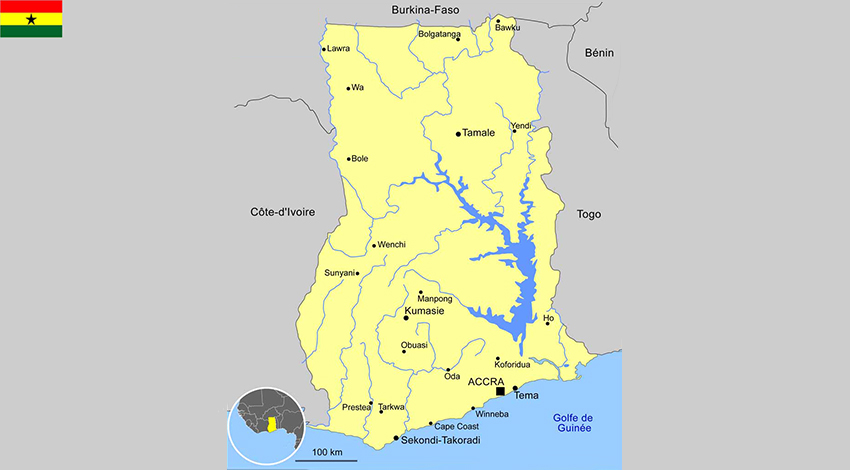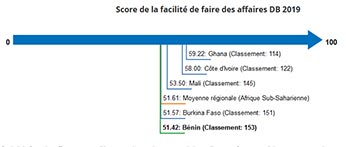
Political system
Formed from the merger of the British colony of the Gold Coast and the Togoland trust territory, Ghana in 1957 became the first sub-Saharan country in colonial Africa to gain its independence. Ghana endured a series of coups before Lt. Jerry RAWLINGS took power in 1981 and banned political parties. After approving a new constitution and restoring multiparty politics in 1992, RAWLINGS won presidential elections in 1992 and 1996 but was constitutionally prevented from running for a third term in 2000.
In Ghana the president and vice president directly elected on the same ballot by absolute majority popular vote in 2 rounds if needed for a 4-year term (eligible for a second term); election last held on 7 December 2016 (next to be held in December 2020). Unicameral Parliament (275 seats; members directly elected in single-seat constituencies by simple majority vote to serve 4-year terms).
- Area : 238.533 km2
- Population : 28.102.471 (July 2018)
- Density : 118 people/km2
- Population growth rate : 2.16%
- Urban population : 56.1% (2018)
- Official language : English
International agreements
- Benin (capital : Porto-Novo)
- Burkina Faso (capital : Ouagadougou)
- Cape Verde (capital : Praia)
- Ivory Cost (capital : Abidjan)
- Gambia (capital : Banjul)
- Ghana (capital : Accra)
- Guinea (capital : Conakry)
- Guinea Bissau (capital : Bissau)
- Liberia (capital : Monrovia)
- Mali (capital : Bamako)
- Niger (capital : Niamey)
- Nigeria (capital : Abuja)
- Senegal (capital : Dakar)
- Sierra Leone (capital : Freetown)
- Togo (capital : Lomé)




